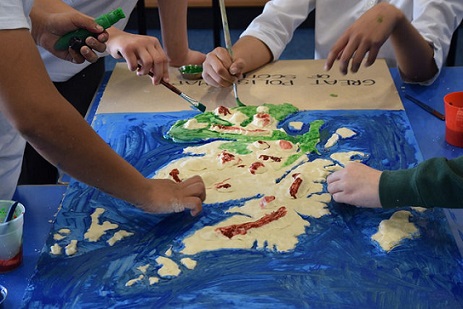
Since 2004 Scotland has seen a wave of migration from East Central European countries that acceded to the EU. In contrast to much of the rest of the UK, in Scotland low birth rates and out-emigration still create gaps in the labour market, particularly in rural areas, which these migrants have been encouraged to fill.
The aim of the project was to examine migrants’ cultural, social and economic identities and the attitude of Scottish society itself: how do both sides adapt to the challenges of integration? How do the attitudes and reaction of Scottish society to migrant settlement influence integration processes? The objective was to compare and contrast the experiences of such processes among different national groups and explore the potential for social, cultural and economic growth in Scotland. This was achieved through a range of inter-connected activities, including public engagement events, seminars and a schools outreach programme.
Above is an image from the Primary Schools Workshops which took place in Aberdeen on 19 and 20 February. The project featured Wojtek, the Second World War bear. As a soldier, he fought with the Polish army in Monte Cassino. In 1947 he was given to Edinburgh Zoo where he ended his life.